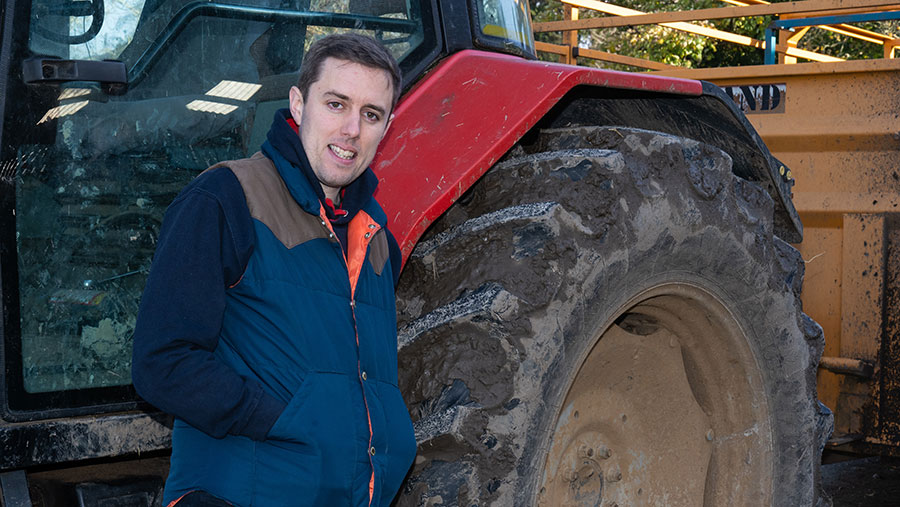Play all audios:
Andrew Meredith © MAG/Tom Askew-Miller A new year is a time of change for many, and this year the turning of the calendar will mark a change at _Farmers Weekly_, as I become the latest
person to have the honour of occupying the post of editor. I have been at _Farmers Weekly_ for a little over four years, but grew up and worked on my parents’ beef and sheep farm in
mid-Wales, meaning the magazine has been a part of my life for much longer. See also: Deep BPS cuts will be hard to recover in full I am inspired on every farm visit, and every day on social
media, by farmers’ drive to improve their land and business to the benefit of consumers, the environment and themselves. On my watch, _Farmers Weekly_ will recommit to assist you in this
endeavour and work hard for your farming future. My entire journalistic career to date has been dominated by the ramifications of the UK’s decision to leave the European Union. In that time,
countless hours have been spent discussing trade deals, tariffs, future agricultural policy and so much more. At the time of writing, UK and EU politicians and negotiators have failed to
find sufficient common ground to agree the terms of a free-trade deal, despite missing dozens of self-imposed deadlines. But there is one deadline they simply cannot ignore – the end of the
year. My preferred option to help them see eye to eye would be to have them penned up as tightly as belligerent rams after a sale. Even without resorting to that, it has been encouraging in
recent days to hear both sides speak a little more optimistically about a pathway through. In the event that a deal is not reached, it is also good to hear that plans are being drawn up to
potentially assist those who could suffer most harshly if tariffs were imposed on our exports – particularly in the sheep sector. There are many readers with firmly held convictions who
believe trading on World Trade Organization terms would be a price worth paying in the short term, to extract better terms from the EU and give the UK more freedom. There is also strong
reason to believe that producers in some sectors, such as dairy or pork, would fare better for a while if imports were harder to come by. But it is hard to disagree with those who say a
failure to strike a deal would be a failure of diplomacy that would cause unnecessary pain to business owners and taxpayers as our leaders already grapple with how to pay for the cost of the
coronavirus pandemic. Like the torrential rain in autumn 2019, and the drought the following spring that did so much to deplete crop yields and arable profits, so much of it is out of our
control. But whether the political weather brings us fair winds or foul, _Farmers Weekly_ will be here to help you plot a way through. In print, on the website and by podcast, we will bring
you practical information to tackle farm-level problems. We will keep you up to date with every twist and turn of the big issues of the day. And on topics where debate rages, such as trade,
farm policy and setting a course to carbon neutrality, we will be the place where the best representatives of both sides can have a lively discussion in good faith and leave you to make up
your own mind.

